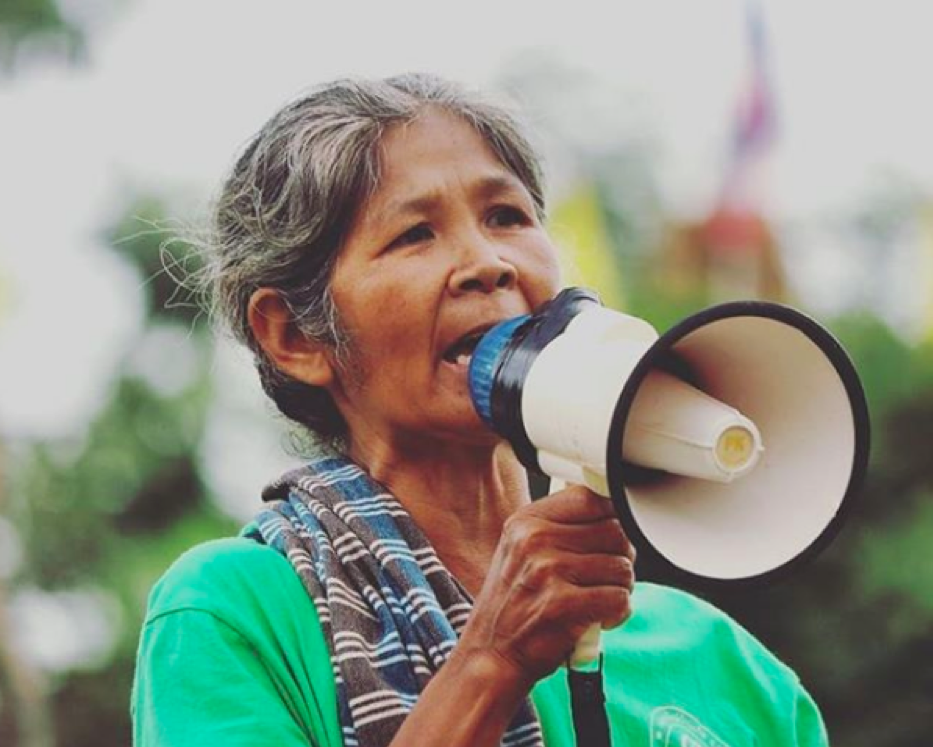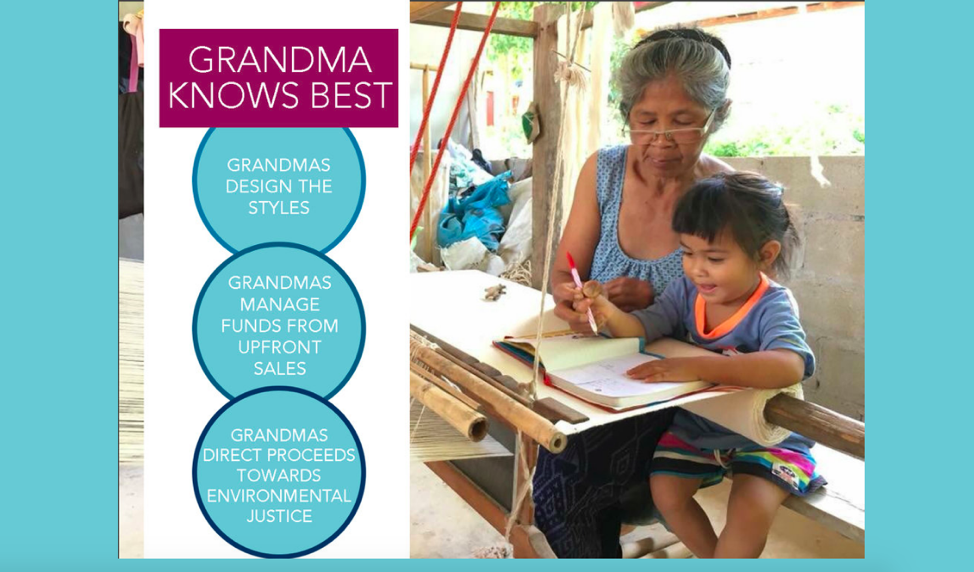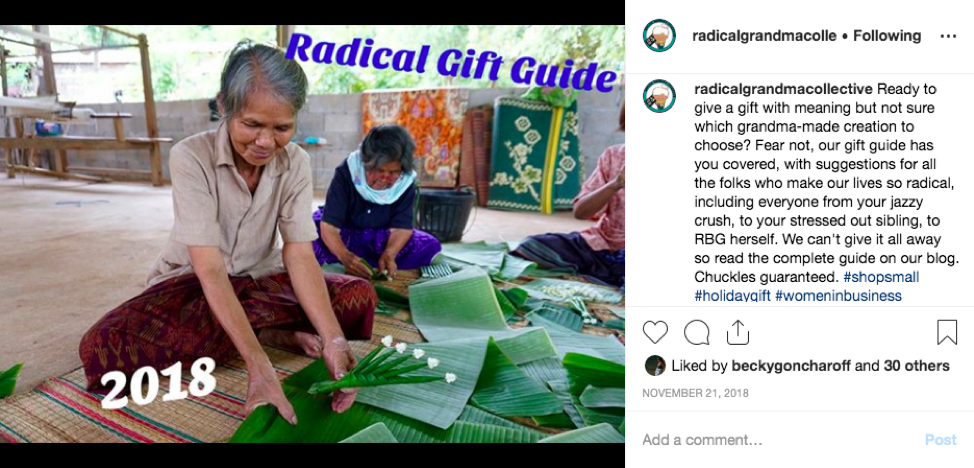By Zoe Swartz and Praveena Fernes  Our story begins with a radical grandma, Ranong Kongsean, who had a vision for uniting her friends through weaving in order to support her community’s fight for environmental justice.
Our story begins with a radical grandma, Ranong Kongsean, who had a vision for uniting her friends through weaving in order to support her community’s fight for environmental justice.
Ten years ago, a gold mine was built near Ranong’s village, Na Nong Bong in Thailand. Pollution from the mine had devastated the community’s health and traditional livelihood. Mired in expensive legal battles with the mining company, villagers were sued for defamation after they protested the company’s transgressions. In response to these human rights violations, Ranong and other villagers formed a group called People Who Love Their Hometown that organized villagers to protest the mine and demand environmental justice though direct action and community education.
Ranong, a moral social pillar of the community, recognized that a successful movement hinged on a united group. While many elder women regularly put themselves on the frontlines of the fight, Rangong also recognized that creating different access points could bring even more people into the movement. The older women were already weaving, an art form that has been passed down generation to generation, so Ranong had the idea of creating a weaving cooperative that could donate a portion of sales to People Who Love Their Hometown. The weaving cooperative serves as a space for the women to organize, build community, and play a pivotal role in the resistance effort.
However, scarf sales were sporadic without access to a consistent market. To bridge this gap, six US- and Thailand-based women collaborated to operate international sales of The Radical Grandma Collective (RadGram, for short). Our non-profit creates a model for supporting women in environmental justice work and takes a strengths-based approach by working with activists who have been organizing for over a decade, and connecting traditional weavers to our networks in the US.

Our approach to ethical storytelling is centered around the motif of the powerful grandma. All of the language used on our website and marketing puts emphasis on the strength and skill that the grandmas possess. We are aware that encouraging our customers to “empower” the grandmas is a fallacy because the grandmas are already empowered. As outsiders collaborating on a social enterprise with the community, we are charged with the delicate task of authentically sharing their stories and inspiring people from abroad to financially support the movement.
The grandmas have an organized weaving cooperative and strong skills in the craft on their own, but we realize that we could work in solidarity by providing assistance in website administration, marketing, and fundraising (i.e. the things that grandmas do not have the time, interest, or access to do). Most of our team cannot physically be in Thailand, but working on this project for the past three years has taught us useful ways to leverage our privilege from afar to support global environmental and human rights organizing. RadGram provides the international community with a platform to financially support the resistance efforts and concrete ways to support with time, such as selling scarves at markets or sharing RadGram on social media. 

RadGram is a labor of love and we are lucky to be sharing the stories of such strong and vibrant women. As outsiders with privilege, it is important for us to consistently and intentionally evaluate our storytelling because ultimately, our words are the ones that reach our international networks. The lynchpin of the venture’s success is our team’s personal relationship with the community and the time we’ve spent getting to know the individuals and dynamics of the group. Rather than treat the community’s struggle with the mine as a sob story, we celebrate the power of everyday people to organize, fight, and win.
To learn more about mining resistance in Thailand and support the grandmas, visit www.radicalgrandmacollective.




